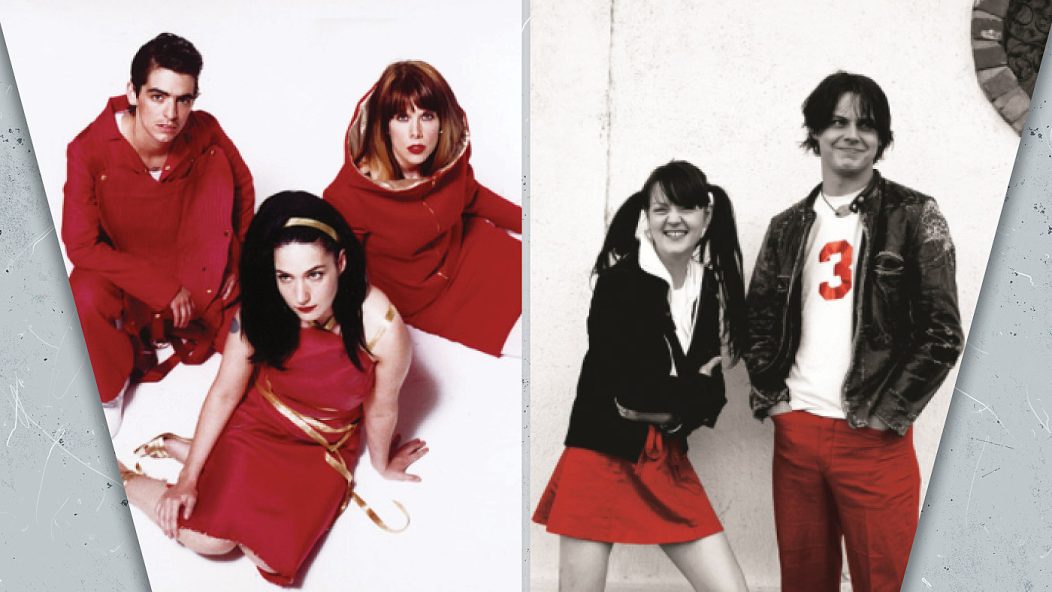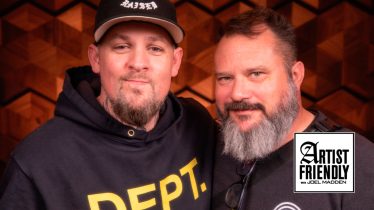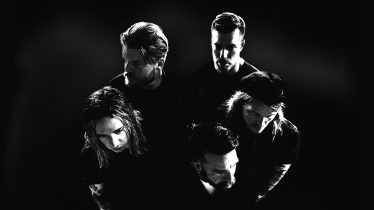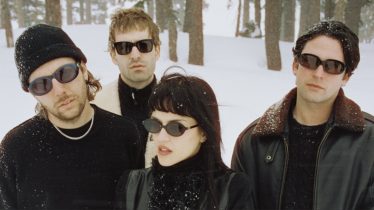
1999’s 15 best punk albums heralded a new age of mainstream rock
Welcome to Alternative Press’ pick of 1999’s best punk albums. It can be argued that the tone for the entire year was set in its first two months. For one thing, the 21-day impeachment trial of President Bill Clinton for perjuring himself in the investigation into the scandal over his affair with White House intern Monica Lewinski commenced Jan. 7. President Clinton would be acquitted by the Senate Feb.12. Meanwhile, The Sopranos premiered on HBO Jan. 10, heralding a golden age for high-quality cable TV dramas. Family Guy’s Jan. 31 debut on Fox heralded an altogether different televisual golden age.
Read more: Nirvana’s 1992 cover captures a band breaking into the mainstream
In England, Fatboy Slim’s “Praise You” single hit No. 1 on the British charts. Eminem’s The Slim Shady LP unfurled Feb. 23. And just as radio was getting land-locked by his and Kid Rock’s caucasian rap and the more metallic variant practiced by Limp Bizkit, blink-182 dropped Enema Of The State June 1. The charts and MTV were now safe for pop punk once more. Come Nov. 2, Rage Against The Machine issued The Battle Of Los Angeles, smacking America in the face with a brace of revolutionary left-wing politics and abrasive guitar fury. Time and Rolling Stone both named it the year’s best album.
The punk underground couldn’t care less. It was busy priming the world for rock’s future. Millennial garage-punk, about to swamp the mainstream two years hence, saw its future royal couple the White Stripes issue their first full-length statement, still pretending they were siblings as they headed to divorce court. Dead Moon, the Hellacopters, Guitar Wolf, the Reatards and Cheater Slicks all released strong LPs that made noise. Classic punk got well represented by U.S. Bombs and the Black Halos. Amen fused hardcore with nü metal, Anti-Flag asked “Rage Against What?!” on their third album and Bikini Kill’s Kathleen Hanna reinvented herself as a playful electro musician with Le Tigre. Meanwhile, a ghost from punk rock’s past reincarnated itself. And God was their return welcome…
Blondie – No Exit
It was utterly stop-you-in-your-tracks unforgettable the first time you heard it: a chugging, insistent guitar intro, finally detonated by some of the most recognizably explosive drums in all of rock. And that deadpan voice, intoning an ode to the unattainable female: “She’s like a millionaire/Walkin’ on imported air/Ooh, it makes you wanna die…” Blondie, the first band to break out of CBGB into the pop mainstream, were back. “Maria” was the perfect Blondie comeback single, almost rivaling “Dreaming” in its perfection. The rest of No Exit, the accompanying LP, came close. But none was “Maria.” It lives forever.
Amen – Amen
“They’re more pissed off than we ever were,” Sex Pistols guitarist Steve Jones remarked at the time. Singer/mastermind Casey Chaos ignited Amen in Los Angeles in 1994, after his old band Disorderly Conduct disintegrated. Come their second album, they were an assault weapon with an ever-changing lineup backing Chaos’ tonsil-shredding vocals. Over rampaging riffs that melded the most brutal parts of hardcore, industrial and nü metal, Chaos attempted to scream down a cruel world, especially an America soon to be savage, militaristic and ultra right wing. He saw it coming, and it sickened him to his marrow. A truly, beautifully ugly record.
U.S. Bombs – The World
“Lotta’ paranoia everywhere/Take a look out yer door,” U.S. Bombs singer Duane Peters bawled over Kerry Martinez’s Mick Jones chords, as the Orange County punk traditionalists began their fifth album in as many years. “If it ain’t the tube, it’s the paper news—third world war,” he continued. Increasingly, U.S. Bombs sounded as if they were taking it upon themselves to be the Clash if the real thing weren’t coming back. The World was their most political album yet. It perfected their Give ‘Em Enough Rope musical attack as Peters predicted war on the horizon, even if that horizon was three years away.
The Black Halos – The Black Halos
The Black Halos arose from Vancouver, British Columbia, the herald of a new sleaze-rock wave about to grip the punk-rock underground. Backyard Babies’ Total 13 and Turbonegro’s magnificent Apocalypse Dudes the previous year fired the first shots. Now came a quintet who seemingly marinated in the runoff juices of the Stooges, New York Dolls, Dead Boys and Rolling Stones, with maybe some Motörhead for seasoning. With Billy Hopeless drawling like a narcotized Stiv Bators in David Johansen’s old feather boa, and Rich Jones and Jay Millette’s black-leather guitar attack, such The Black Halos tunes as “Retro World” and “Fucked From The Start” thrilled immeasurably.
The Donnas – Get Skintight
Their 1997 debut presented them as a lo-fi female Ramones. The following year’s American Teenage Rock ‘N’ Roll Machine remade them as a pre-millennial Runaways. Get Skintight seemed to perch somewhere between those two poles. Numbers such as “You Don’t Wanna Call,” with its Shangri-Las/Shadow Morton high drama, could easily have been warbled by Joey Ramone, with a slight gender change. Then boogie riffers such as “Searching The Streets” and “I Didn’t Like You Anyway” crawl into the sonic picture, giving guitarist Allison Robertson’s inner Lita Ford free rein. Produced by Redd Kross’ Jeff and Steve McDonald—perfect!
Anti-Flag – A New Kind Of Army
“Anti-Flag does not mean Anti-American.” So reads a disclaimer crawling across the bottom of the Pittsburgh political punk powerhouse’s second studio full-length. “Anti-Flag means anti-war. Anti-Flag means unity.” With the Justin Sane/Pat Thetic/Chris Head/Chris #2 lineup fully in place, A-F fully set their mission: filtering vintage Clash through a sieve constructed from early hardcore and latter-day pop punk. It sharpened their critique of American society, militarism and oppression. “Too smart to fight/Too smart to kill for you,” Sane cried on the title track, echoing slogans on the fold-out poster. And too smart to fall prey to typical traps, as well.
The White Stripes – The White Stripes
It seemed shockingly new upon first listen. And yet, there had been precedents for this loud garage duo, still telling the world they were brother and sister. Flat Duo Jets’ two-man raunchabilly was the White Stripes’ most immediate precedent, along with the shaman-like punk blues of the Gun Club and Jon Spencer Blues Explosion. But this weird record, done entirely in shades of red, black and white, including Jack and Meg White’s clothing, was fresh in a time ruled by jock-infused rap-metal. Meg’s monolithic bashing and Jack’s ultra-fuzz guitar and wailing wall vocals on tunes like “The Big Three Killed My Baby” truly healed the sick and raised the dead. Future looked bright red…and white, and black.
Le Tigre – Le Tigre
It was good to know that Kathleen Hanna wasn’t going to be silenced by Bikini Kill’s 1997 dissolution. Initially begun with friends Sadie Benning and Johanna Fateman to tour behind her electro Julie Ruin debut solo LP, Le Tigre evolved into its own beast. The name was derived from a list of hypothetical band names Hanna compiled in 1994. Le Tigre, the band and the album, was a lot more fun and playful than Bikini Kill. Basically a set of lo-fi electronic playground chants, the fun atmosphere served as a sugar-coating for Hanna’s ongoing discourse on feminist and LGBTQIA+ issues. Just color this version more dance floor-oriented, with much repetition and occasional lashings of fuzz guitar.
The Reatards – Grown Up, Fucked Up
Memphis, Tennessee, one of the cradles of rock ‘n’ roll and soul music, has always had a distinctive take on punk. From the all-female Klitz and Tav Falco’s Panther Burns in the late ‘70s to the blitzkrieg trash-fest that was the Oblivians, Memphis punk’s always been looser, garage-ier, more lo-fi. The Oblivians inspired 15-year-old James Lee Lindsey, Jr.’s metamorphosis into Jay Reatard, multi-tracking primitive scuzz-blast demos himself on a four-track cassette machine—screaming, playing guitar, beating a bucket for “drums.”
Oblivians guitarist Eric Friedl was so impressed, he signed the Reatards to Goner Records, leading Reatard to form an actual band—bassist Steve Albundy and drummer Elvis Wong. Grown Up, Fucked Up was actually the second Reatards album. It showed Reatard’s evolution into the more sophisticated garage punk that typified his solo work and future project Lost Sounds—still scuzzy, angry and assaultive but with deepening melodic and compositional smarts. It marked the first time many would hear one of millennial punk’s most important voices.
Guitar Wolf – Jet Generation
Was it possible for rock ‘n’ roll to get louder, more crude and distorted than Guitar Wolf’s 1997 Planet Of The Wolves? Yes, it was called Jet Generation. Matador Records claimed in the accompanying press release that mastering engineers called back after the label sent a CD-R for one track’s inclusion on an in-store sampler: “The levels exceeded the theoretical maximum possible on compact disc audio. In other words, Jet Generation is the loudest CD in history.” Perhaps. What is quantifiable was that it was as exciting and primitive as every other Guitar Wolf record—rock ‘n’ roll at its most troglodyte.
…And You Will Know Us By The Trail Of Dead – Madonna
Austin, Texas’ …And You Will Know Us By The Trail Of Dead—essentially Jason Reece and Conrad Keely, each alternating on drums, guitar and vocals—are the intersection of punk explosiveness and prog ambition. They’d clearly been absorbing lessons from Sonic Youth, My Bloody Valentine and Fugazi. A copy of Refused’s The Shape Of Punk To Come may have been floating around as well. Second studio full-length Madonna, T.o.D.’s first for mega-indie Merge, was as epic a distillation of the band’s molten live fury as was possible in a proper recording studio, minus the guitar-smashing theatrics they’d adopted.
Cheater Slicks – Refried Dreams
Refried Dreams was the sixth studio full-length for the now 12-year-old garage-scuzz trio Cheater Slicks, who relocated from their native Boston to Columbus, Ohio, in 1996. They’ve remained there since. By this point, they’d proven they needed no bass guitar to sound full and glorious. Brotherly guitarists Tom and Dave Shannon’s contrast of fuzz and clarity over Dana Hatch’s caveman drumming filled every sonic nook and cranny. It was cool hearing the songwriting sophistication they’d developed. Opening track “In This Town” had a tinge of Phil Spector to it, while “I Think I’m Coming Down” could have been Lee Hazlewood jamming with the Rolling Stones during Aftermath’s recording. Yeah, they were that good.
Dead Moon – Destination X
Portland garage royalty Dead Moon—much like the Ramones, AC/DC, Motörhead or the Cramps—perfected their exquisite take on rock ‘n’ roll with 1988 debut LP In The Graveyard. It remained consistent throughout their entire career, including on this, their eighth studio LP. Everything was recorded in mono, the masters cut by leader Fred Cole on the very lathe that had rendered the Kingsmen’s “Louie Louie.” Everything centered around wife Toody Cole’s insistent bass pulse locking in with drummer Andrew Loomis’ graveyard drums. Fred would then lay his crunchy guitar and expressive vocals, wailing a potent, crispy midnight blues.
The Hellacopters – Grande Rock
Modern garage blitzkrieg-ists the Hellacopters were relentless in their mission to remove Detroit 1969 from Australia and reinstall it in their native Sweden as its musical capital. With guitar demon Dregen now firmly back in the Backyard Babies’ fold, keyboardist Anders Lindstrom (under the nom de six string Boba Lee Fett) was tracking dueling Epiphones with mainspring Nicke Andersson. Grande Rock—named for the Grande Ballroom, where the MC5, the Stooges and all other late ’60s Motor City power-rockers cut their teeth—saw the production elevate stratospherically. It was their most fully realized release to date, containing such exemplary tunes as “The Devil Stole The Beat From The Lord.” Still, they needed to be broken of their notion that merely playing KISS riffs at Ramonic velocity with R&B swagger equaled Detroit punk.
AFI – Black Sails In The Sunset
Founding AFI guitarist Mark Stopholese exited after 1998’s A Fire Inside EP. It featured covers of the Cure and Misfits that were head-scratchers to anyone only cursorily paying attention to the California act thus far. With Jade Puget—contributor to third LP Shut Your Mouth And Open Your Eyes—fully installed as their guitarist, AFI set about proving those covers were no fluke. Black Sails In The Sunset fully gave in to the creeping horror-punk darkness. It was chock-full of eerie drama and black shadows. It was a harbinger of AFI’s millennial ascendancy. Alternative Press’ Jason Heller dubbed it “their first epic.”







